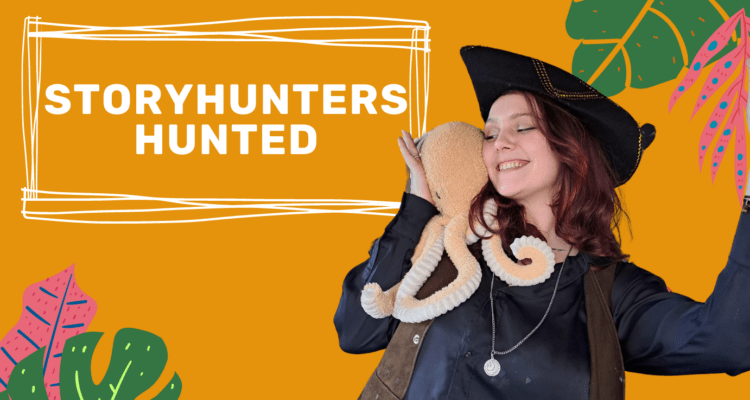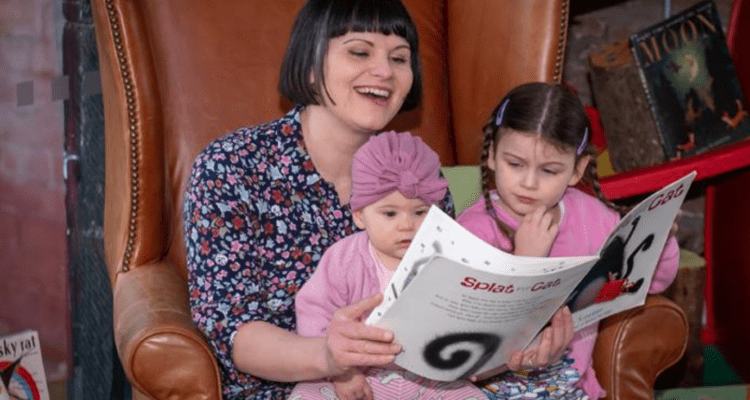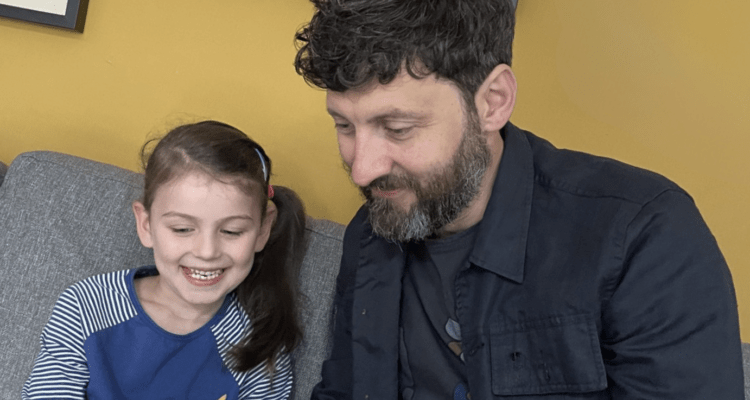Michael Morpurgo Calls for Passion in Getting Children to Read
One of the nation's most popular children's authors, Michael Morpurgo, wrote a column in the London Evening Standard on Friday, expressing his thoughts on the need for children to be encouraged to read.
The author of War Horse, The Butterfly Lion and Shadow called for parents and teachers to pass on an enthusiasm for literature to their children. In his introduction Morpurgo said trying to inspire a love of literature was either 'very energising and postive' or 'very depressing'.
Which way it goes depends on the quality of teaching and whether there is a flourishing library. That books are available is a right of every child, and his or her way to access the literature of their country. But it is also critical to have people who can pass on the passion for reading to them. On this we are patchy.
Through our work with schools and looked after children, The Reader Organisation has numerous project workers/managers who are the people Morpurgo is calling for, and what's more he's met two of them - our Young Person's Project Manager, Sam Shipman and Project Worker Anna Fleming.
Along with other project workers, Sam and Anna have read with plenty of children who were reluctant to read, but have completely revolutionised their outlook. Not only has our young person's team encouraged children to enjoy reading, they have read some of Morpurgo's very own books including War Horse, Private Peaceful and Mr Skip.
Michael Morpurgo went on to criticise the way reading is employed in schools:
They [teachers], through no fault of their own, have been encouraged by this Government and the last to use literature as a tool in the Key Stage testing system. The culture is skewed for results, but if you teach with that aim there is little space for children to become inspired with a love of what they are reading.
Although we read with children, The Reader provides a friendly, relaxed and completely non-academic environment without tests or demanding questions. We facilitate the shared reading of enjoyable texts which really capture children's imaginations. It seems again, we are providing what Morpurgo is calling for:
You need teachers who enjoy books for themselves, who have been encouraged to become readers while they were training, so that they can pass on the love of good writers to children. And you need time in the curriculum to enable teachers to share their love of a great book or poem, a storytelling at the end of every school day for half an hour. No comprehension test afterwards, simply enjoyment.
Morpurgo's article follows a series of articles in the London Evening Standard documenting the high rates of illiteracy in the city, with one in three children not owning a book of their own and 80% of parents "struggling to find an opportunity to read with their children." This is something The Reader strives to correct in our attempts to introduce a reading revolution.
Share
Related Articles

Storyhunters Hunted: Jelly Belly
We're making it our mission to track down all of our wonderful Storyhunters and find out a little more about…

Reader Revisited: Reading with Looked-After Children by Grace Frame
We're taking a trip down memory lane and revisiting articles from The Reader Magazine. This article first appeared in issue…

Daniel’s Reading Heroes Volunteer Story – “I don’t think she’s had anyone reading aloud to her in the way that I do it.”
Reading Heroes matches volunteers to read with care experienced children and young people in order to spark a life long love…



12 thoughts on “Michael Morpurgo Calls for Passion in Getting Children to Read”
I think Michael Morpurgo’s article is very interesting and very true. Too many young people miss out on the opportunity of being read to, which is crucial to them developing a love for reading.
Many of the young people I read with told me when we started they think reading is boring, English is boring and they wouldn’t go near books. Over time however, they all begin to relate to the stories we read and enjoy them in very different ways. It is amazing how individual every young person’s response is: whether they like to relate their own experiences, get creative and imaginative, try to work out the plot, or identify with particular characters.
It is important for young people to be supported and encouraged whilst they develop their own way to explore books and poems, and learn how great reading can be.
That’s an interesting piece. As I might have mentioned before 😉 it seems to me important that boys see adult men reading too: Teachers, parents and role models (is Jamie Oliver a role model?).
Yes, he is. Here’s a recent comment he made on his personal sadness at being unable fully to enjoy reading because of his dyslexia and his pride in the fact that his daughter can and does:
‘My dyslexia’s a weird one [he said], sometimes I have really good days at reading, sometimes I read like a five year old. It’s weird because my daughter, Poppy, reads a book a day and she’s eight. A book a day, I’m talking a book half an inch thick. And the terrible thing is, I’ve never read a book in my life ever.’
Can we stop the ‘Jamie bashing’, please? That Guardian article has a lot to answer for, IMO!
It is fantastic to see Michael Morpurgo’s article, he is such a big name in the world of children’s literature that surely people will take notice of what he says. It is such a shame that teachers are so restricted by the national curriculum that young people are missing out on what is crucial, developing a love of reading. So many of the young people I read with have been so busy trying to learn grammatical rules and looking for similes and metaphors that they have missed out on the main thing, enjoying reading. This must always come first and that is what we do at The Reader Organisation, we give young people the space and encouragement to make their own personal connection with books, and once they have done this the only way is up.
I couldn’t agree more, you can easily learn literary criticism but you can’t learn that gut reaction which books give. I know because having travelled the long road of academia to the final goal I often had to struggle against being told not to be ‘too emotional’ about texts. I still, however, cry every time I read David Copperfield et al and I’m glad I do!
I read with all my students, children and adults, and wait until after we have read a text before going back over it pointing out metaphors, similes etc. because by then, I usually find they want to know more. But, yes, absolutely, the enjoyment must come first, last, always.
“A storytelling at the end of every school day for half an hour. No comprehension test afterwards, simply enjoyment”. Michael is so right in what he says, let the children experience the pleasure of shared reading without having the pressure of achieving results for the endless League Tables that exist in our lacklustre education system.
I did laugh a few weeks ago when watching the addictive “Million Pound Drop”, Two contestants were asked to choose a category (Books or Sport) to which they both said Sport as we don’t read Books; the presenter of the programme asked what they did for a living & without a moments hesitation “Oh we are both Teachers”. Hopefully they are in the minority of the teaching profession but alas I think not.
I’m a teacher, proud to be so, and I read and of those two categories I would have chosen Books, of course. However, I know nothing about Sport and I could if I chose so I am making a choice not to know about a huge area of most people’s lives because Sport doesn’t interest me.
Books are fantastic, they enhance your life, take you on journeys, help you to understand yourself and others and, I hope, make you more tolerant. What they do NOT do is make you a superior human being.
The contestants you mentioned may teach Sport and read only to supplement their knowledge of that – does that necessarily make them bad teachers? I don’t think so.
I didn’t say that they were Bad teachers & yes Sport maybe their speciality, I was just a little taken aback when they said they never read books & proceeded to state that they were teachers with self satisying smirks on their faces. I started teaching in my late 40’s & had to make a decision – either secondary or F/E, I chose the latter because I couldn’t bear the thought of League Tables, SAT’s & everything that is associated with figure crunching.
I do voluntary work at my local community library & often read aloud at Story Time sessions & to see the diverse expressions on the faces of children, parents & grandparents is a joy to behold. Reading for pleasure, either to yourself or to others enhances the wellbeing factor tenfold.
I see your point, Brian, and although I didn’t see the show to which you referred proclaiming any ignorance with a ‘smirk’ is abhorrent that’s why I have a problem with people saying proudly that they don’t know who someone is e.g. Davinia Taylor. It is just that sometimes there can be a tendency in society in general to suggest that choosing reading over another activity makes you somehow superior and that gets my back up, I’m afraid!
I, too, teach in FE but I also teach young people one to one and we all read aloud. I’ve been reading ‘The Hobbit’ with 3 boys aged 12 recently and we have all loved it. In my CE classes for Liverpool University, we all take it in turns to read and the effect is astonishing because even familiar books/poems sound different in a variety of voices, it brings them to life, I think, and currently my oldest CE student is 92!
So, I guess there is much we agree on, eh, and I’m all for ‘Get Into Reading’ just not ‘Get Into Reading – or else!’
I’ve been running GIR groups in primary and secondary schools across Merseyside for the past three years, and it’s fascinating to see the massive difference in how young people engage with a story or poem that they hear as well as read. I experienced this myself when listening to Michael Morpurgo read ‘Warhorse’ aloud at the Hay Festival; I felt far more involved in the story, part of it somehow, despite sharing the experience with thousands of people (and cameras!).
For those who might be interested, I am going to be involved with a special Read to Lead course that we are running in Winchester soon on Reading with Young People, commissioned by Hampshire Council but with a few extra spaces! If you’d like more details, please follow this link; http://thereader.org.uk/training/upcoming-courses/
I am currently reading War Horse with my Year 6 children and have recently finished an entire Topic on Kensuke’s Kingdom, which the children loved and were hugely inspired by. I have made time in the curriculum for reading for enjoyment and for relaxed reading times with no expected outcome other than the pleasure of a good book. In my role as Literacy sublect leader I’m trying to encourage others in the school to adopt this approach. However, at a recent Local Authority course I was told that if any child in my class is not making progress during reading time I could be judged to be unsatisfactory. I was advised to put in a bit of comprehension at the end! Teachers engage daily in a frustrating struggle between what we know is right for the chidlren and what Ofsted might spring on us next.
[…] “Shadow” Wins Children’s Book Prize – BBC News, June 11, 2011. Michael Morpurgo Calls for Passion in Getting Children to Read by Dave Cookson at The Reader Organisation. Lessons in Survival by Michael Morpurgo – The […]